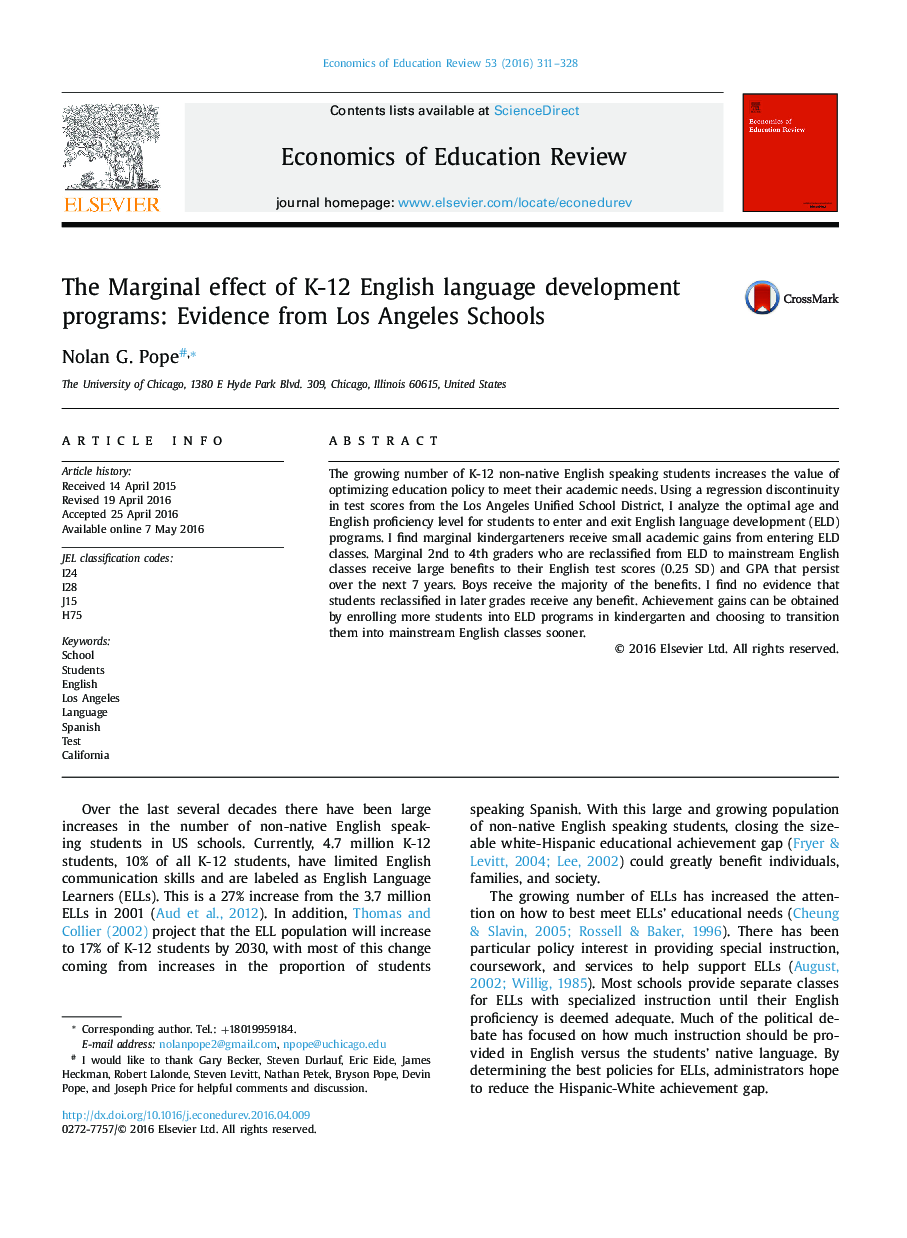| Article ID | Journal | Published Year | Pages | File Type |
|---|---|---|---|---|
| 354289 | Economics of Education Review | 2016 | 18 Pages |
•Young marginal ELLs receive large and persistent English gains when reclassified.•Small English gains found for marginal kindergarteners placed in ELD classes.•The English benefits from reclassification persist over the next 7 years.•Boys receive the majority of the benefits and there is no evidence of gains in math.•Potential achievement gains from more ELD enrollment and earlier reclassification.
The growing number of K-12 non-native English speaking students increases the value of optimizing education policy to meet their academic needs. Using a regression discontinuity in test scores from the Los Angeles Unified School District, I analyze the optimal age and English proficiency level for students to enter and exit English language development (ELD) programs. I find marginal kindergarteners receive small academic gains from entering ELD classes. Marginal 2nd to 4th graders who are reclassified from ELD to mainstream English classes receive large benefits to their English test scores (0.25 SD) and GPA that persist over the next 7 years. Boys receive the majority of the benefits. I find no evidence that students reclassified in later grades receive any benefit. Achievement gains can be obtained by enrolling more students into ELD programs in kindergarten and choosing to transition them into mainstream English classes sooner.
